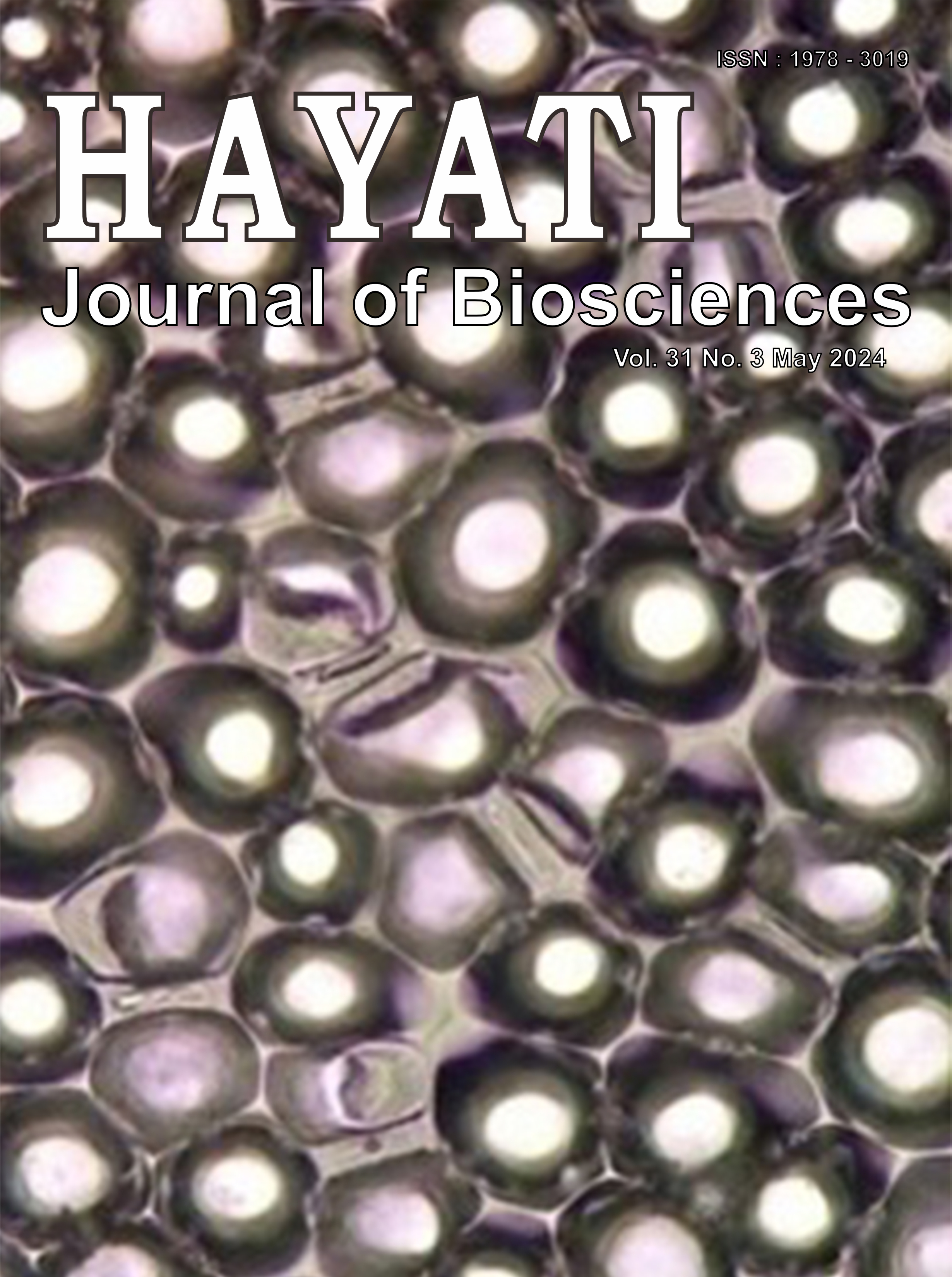Effect of Drought Stress on Proline Gene Expression, Enzyme Activity, and Physiological Responses in Thai Mulberry (Morus spp.)
Abstract
Mulberries are vital for the silk industry as the sole natural food for silkworms, but their quality and quantity can be greatly impacted by environmental factors, notably water shortages or droughts. In this study, the proline content and expression levels of the Pyrroline-5-carboxylate reductase (P5CR) gene in four recommended Thai mulberry varieties (Sakhonnakorn, Sakhonnakorn 85, Burirum 60, and Srisaket 84) and one standard drought tolerant variety (SRCM9809-34) were measured under drought stress. Additionally, physiological data and antioxidative enzymatic activities were also examined. The findings revealed that SRCM9809-34, a drought-tolerant variety, had the lowest proline content, followed by Sakhonnakorn 85, Burirum 60, while the highest proline content was observed in Srisaket 84. Although there was no correlation between the expression level of the P5CR gene and proline content, the overall trend in all varieties was the same: proline content increased after drought conditions. Regarding physiological responses, the wilting score showed similar results to proline content, with SRCM9809-34 having the lowest proline content and wilting score. Moreover, SRCM9809-34 exhibited the highest RWC, Pn and WUE values, as well as the lowest level of MDA and H2O2. Our results validated and indicated that SRCM9809-34 is a drought-tolerant variety. From this finding, among the four Thai mulberry varieties, Sakhonnakorn 85 exhibited the highest potential for drought tolerance, and this potential can be enhanced through crossbreeding with SRCM9809-34.
Downloads
Copyright (c) 2024 Surapa Nutthapornnitchakul, Weerasin Sonjaroon, Nutdanai Putthisawong, Natnicha Thumthuan, Piyama Tasanasuwan, Chatchawan Jantasuriyarat

This work is licensed under a Creative Commons Attribution-NonCommercial 4.0 International License.
HAYATI J Biosci is an open access journal and the article's license is CC-BY-NC. This license lets others distribute, remix, tweak, and build upon author's work, as long as they credit the original creation. Authors retain copyright and grant the journal/publisher non exclusive publishing rights with the work simultaneously licensed under a https://creativecommons.org/


















.png) IPB University
IPB University Department of Biology
Department of Biology The Indonesian Biological Society
The Indonesian Biological Society 

